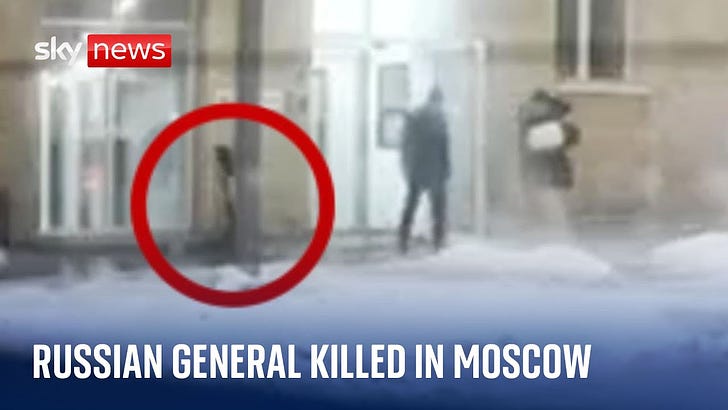Weekend Update #112: Ukraine Strikes a Senior Russian Officer (Again).
Also: Pokrovsk and Kurakhove; Kursk and North Koreans
Hello All,
The big story this week in terms of press coverage was the Ukrainian-claimed strike against a senior Russian officer in Moscow. The strange thing was that this got a huge amount of attention and people seemed to think it marked a major turning point—when actually these kinds of attacks have been absolutely typical throughout the war.
Keep reading with a 7-day free trial
Subscribe to Phillips’s Newsletter to keep reading this post and get 7 days of free access to the full post archives.


